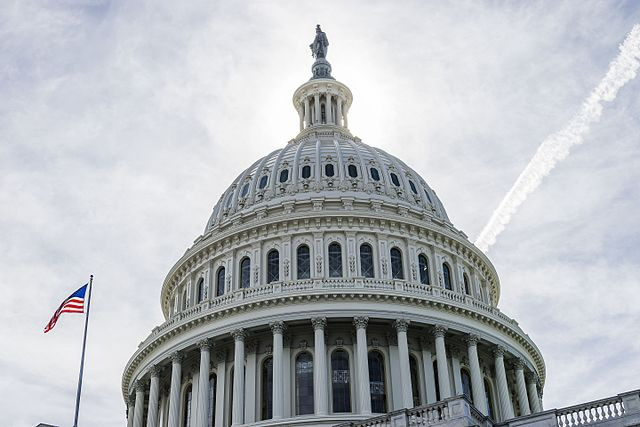Congressional leaders have achieved a consensus on a short-term funding bill, a move poised to forestall a partial government shutdown and extend the government's financial stability into early March. The agreement, a notable step in the intricate process of federal budgeting, has been confirmed by sources familiar with the discussions.
The critical details of the agreement reveal a two-part continuing resolution, designed to fund the government through two separate deadlines: March 1 and March 8. This accord arrives just as the government faced imminent funding deadlines on January 19 and February 2, highlighting its timely nature in averting a potential fiscal crisis.
Sources informed CNN that House Republicans are scheduled to have a conference call to deliberate on the continuing resolution. The text of this resolution is anticipated to be made public on Sunday evening, as stated by a spokesperson for Senate Majority Leader Chuck Schumer.
This development follows the announcement last weekend by Schumer and House Speaker Mike Johnson, confirming their agreement on topline spending numbers for fiscal year 2024. These figures include a total of $1.59 trillion, with a significant $886 billion allocated for defense spending and $704 billion directed towards non-defense expenditure. An additional $69 billion in adjustments, earmarked for non-defense domestic spending, is part of a side deal agreed upon by Schumer and Johnson.
However, the path to this agreement has not been without its challenges. Certain members of the House GOP, particularly those from the far-right faction, have criticized the deal, with some advocating for border policy changes as a condition to prevent a government shutdown. This opposition underscores the complexities facing Speaker Johnson, who is navigating a particularly slim majority in the House.
Despite these tensions, Johnson affirmed on Friday that the spending deal remains intact, after previously indicating a potential shift in stance during negotiations with conservative members.
The CBS News report further confirms that this agreement marks the third short-term spending resolution since September. The disparity in budget negotiations between Democrats and Republicans has been evident, with Republicans pushing for substantial spending reductions.
Senate Majority Leader Schumer, addressing the negotiations, expressed his concerns about a faction of lawmakers advocating for a shutdown, labeling it a tactic to "bully the rest of Congress and the country to bend to their extremist views."
With fiscal year 2024's overall government spending set at $1.66 trillion, including substantial allocations for both defense and non-defense spending, the agreement represents a critical juncture in balancing the priorities of different political factions and ensuring the continuity of government operations.




